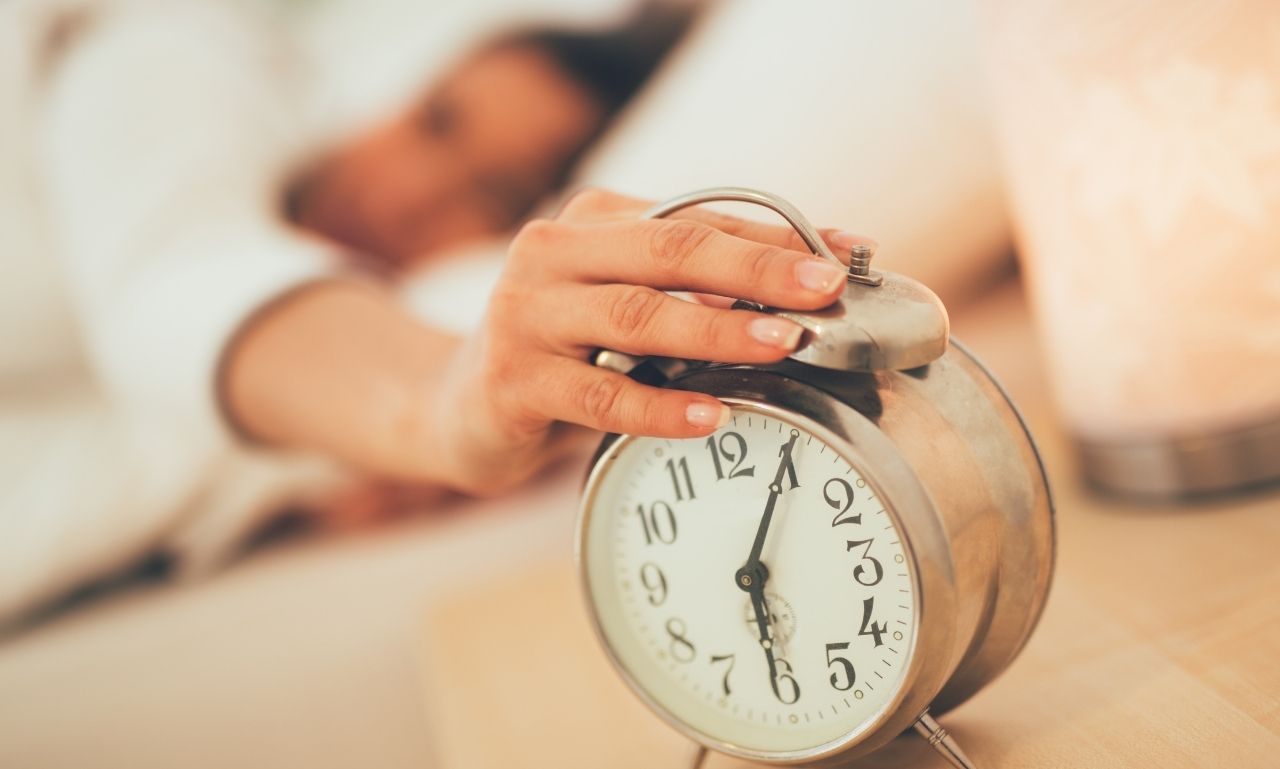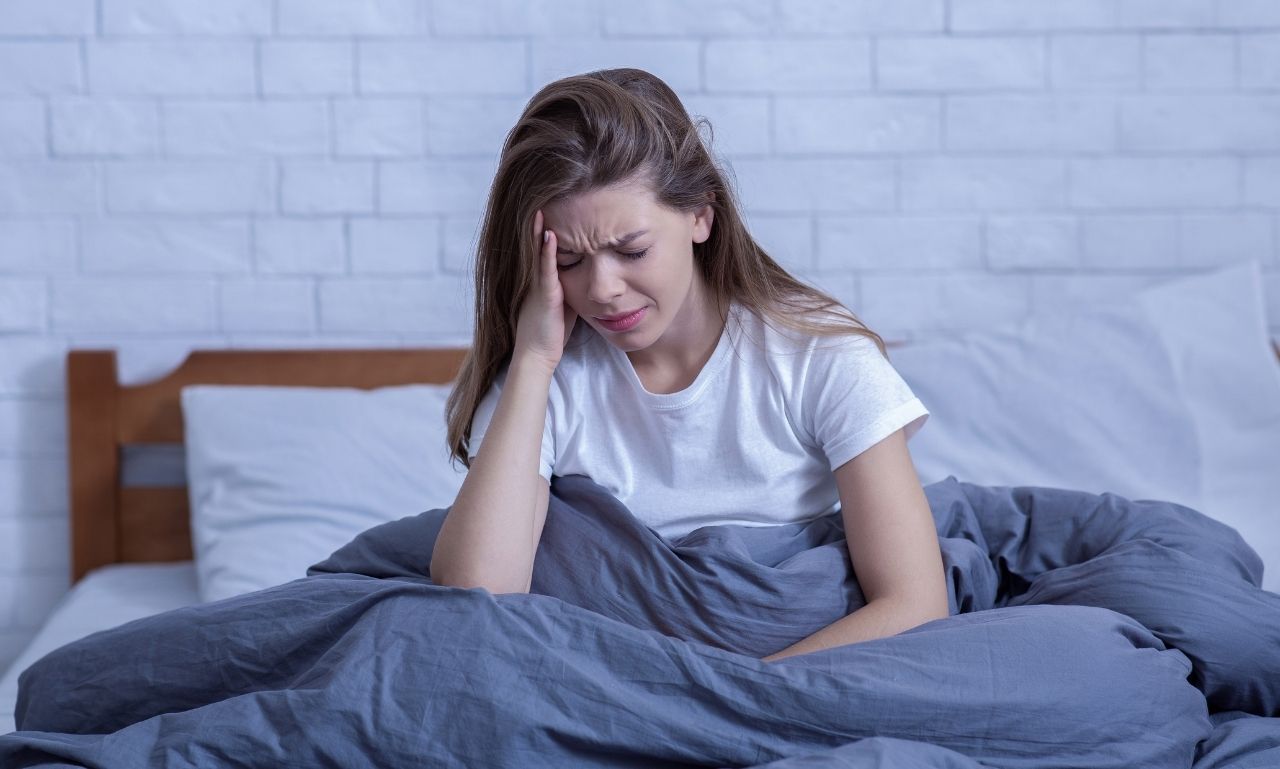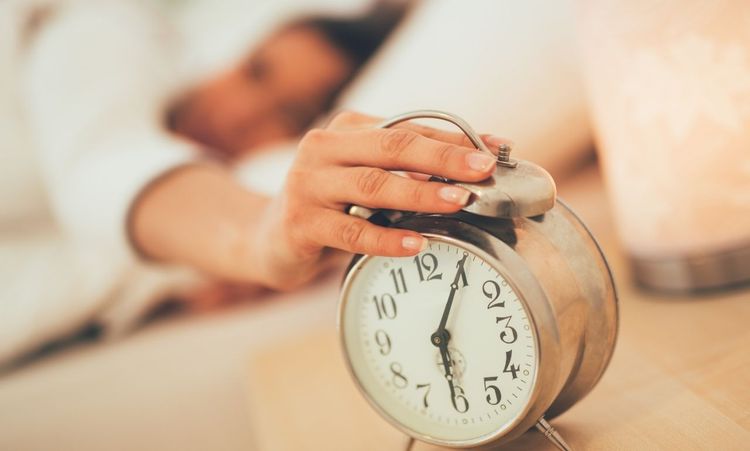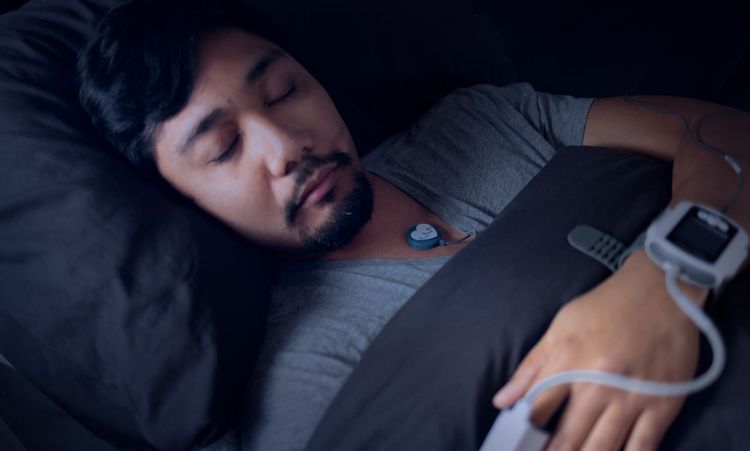Do you ever notice how a stormy night's sleep can ruin your day? You're not alone. Your sleep patterns directly impact your emotional state and overall well-being. The relationship between sleep and mood isn't just anecdotal—it's backed by science. Our bodies follow natural rhythms that regulate when we feel alert or tired. Understanding these patterns can transform your mental health. This article explores how sleep and wake cycles affect your mood and offers practical solutions for better sleep. Let's discover how improving sleep habits can lead to more stable emotions and enhanced mental clarity.
What is the Sleep-Wake Cycle?

The sleep-wake cycle refers to our body's internal timing system that operates on a 24-hour schedule. Scientists call this our circadian rhythm. This biological clock controls when we feel sleepy or awake throughout the day. Your body releases different hormones at various times to regulate this cycle.
Melatonin increases in the evening, making you feel drowsy as darkness falls. Cortisol rises in the morning, helping you feel alert as daylight appears. The master clock in your brain coordinates these processes based on light exposure. Evolution has synchronized our bodies with the earth's rotation over millions of years. Our ancestors woke with the sun and slept with darkness for survival reasons.
Modern life often disrupts these natural patterns with artificial light and irregular schedules. Your personal sleep-wake cycle might naturally lean toward morning or evening preferences. Some people function best as early risers, while others peak later in the day. These tendencies have genetic components but can be modified by habits and environment.
Can Sleep Affect Our Moods?
Sleep absolutely influences how we feel emotionally throughout the day. Even one night of poor sleep can make you irritable and impatient. I once stayed up preparing for a major presentation and felt completely off-balance emotionally. My usual optimism disappeared, replaced by unnecessary worry and frustration.
Research shows sleep deprivation reduces positive emotional responses by up to 30%. Your brain processes emotional information differently when you're sleep-deprived. The amygdala, your brain's emotional center, becomes hyperactive without adequate rest. Meanwhile, your prefrontal cortex—responsible for rational thinking—becomes less effective. This creates a perfect storm for emotional overreactions. Sleep disruptions affect your ability to recognize emotional cues in others accurately. This can damage social interactions and relationships over time.
Your emotional resilience decreases when you're running on insufficient sleep. Small problems seem bigger, and stress feels more overwhelming. Studies demonstrate that people rate neutral images more negatively after sleep loss. This suggests sleep deprivation creates a negative emotional bias in perception. Your emotional memory formation also depends on quality sleep. Without it, you're more likely to remember negative events than positive ones.
What is the Connection Between Sleep and Your Mental Health
How Sleep Disruptions Impact Psychological Well-Being
Sleep and mental health maintain a two-way relationship that affects overall wellness. Poor sleep doesn't just follow mental health issues—it often precedes them. Research from Harvard Medical School reveals that sleep problems affect 50-80% of psychiatric patients. People with insomnia have a significantly higher risk of developing depression later. The risk increases with the severity of sleep disturbances. Your brain performs essential emotional processing during sleep, especially during REM phases. These processes help regulate mood and emotional responses the next day.
Sleep disruptions interfere with neurotransmitter function in the brain, including serotonin, which helps regulate mood and happiness. Brain scans show altered activity in emotion-processing regions after sleep deprivation, mirroring patterns seen in anxiety and mood disorders. Sleep problems affect stress hormone regulation throughout the day, creating a vicious cycle of stress and poor sleep that's hard to break. Your emotional resilience depends on adequate rest each night. Without it, coping mechanisms weaken considerably.
The Role of Circadian Rhythms in Mental Health
Circadian rhythms influence numerous brain functions beyond just sleep timing. These rhythms affect body temperature, hormone release, and gene expression patterns. Circadian disruptions appear in many psychiatric conditions as a core feature. Studies show that circadian rhythm abnormalities often precede mood disorder symptoms. Light exposure at the wrong times confuses these rhythms and affects mood stability. Shift workers experience higher rates of depression due to circadian misalignment.
Your internal clock helps optimize brain function at different times of day. Disruptions to this timing affect cognitive performance and emotional processing. Seasonal changes in daylight hours significantly impact circadian rhythms, explaining why some people experience seasonal mood changes. Research studies show connections between biological clock genes and mood regulation. Variations in these genes are linked to depression, bipolar disorder, and anxiety. Treatment approaches that stabilize circadian rhythms often improve mental health symptoms.
Sleep and Mood Disorders
Depression and Sleep Patterns

Depression and sleep problems frequently occur together in a complex relationship. Nearly 90% of patients with depression experience some form of sleep disruption. People with depression often report difficulty falling asleep or staying asleep. Early morning awakening appears as a common symptom in depressive disorders. Sleep studies show reduced deep sleep and altered REM patterns in depressed individuals. These changes often persist even when other symptoms improve. The timing of sleep usually shifts later in depression. This misalignment with natural daylight worsens mood symptoms.
Research indicates sleep problems often appear before full depression develops. This suggests sleep disruption might contribute to depression onset. Sleep therapy approaches show promise as depression treatments. Improving sleep quality usually leads to mood improvements in clinical studies. Depression medications frequently target systems that also regulate sleep-wake cycles. This indicates the biological connections between these processes.
Bipolar Disorder and Circadian Disruption
Bipolar disorder shows strong connections to sleep-wake cycle irregularities. Sleep changes often signal upcoming mood episodes before other symptoms appear. Manic phases typically feature dramatically reduced sleep needs without feeling tired. Depressive episodes commonly involve excessive sleep or insomnia, depending on the person. Circadian rhythm stabilization forms a key treatment component for bipolar disorder. Maintaining regular sleep-wake times helps prevent mood episodes in many patients.
Sleep deprivation can trigger manic episodes in vulnerable individuals. This highlights how closely sleep regulation connects to mood stability. Light therapy shows effectiveness for bipolar depression in clinical studies. This treatment directly affects circadian timing mechanisms. Social rhythm therapy helps bipolar patients maintain regular daily schedules. This approach stabilizes both sleep patterns and mood over time. Treatment plans for bipolar disorder always include sleep hygiene improvements. These changes often prevent relapse when medications alone might fail.
How the Seasons Affect Sleep-Wake Cycles
Seasonal Changes in Light Exposure
Seasonal variations significantly impact our sleep-wake cycles through changing light patterns. Winter brings shorter days and less exposure to natural sunlight. This affects melatonin production and can disrupt sleep timing. I noticed my sleep quality declining every winter until I implemented light therapy. Morning light exposure sets your circadian clock for the entire day. Seasonal changes alter when you receive this crucial signal. Summer evenings with extended daylight can delay natural melatonin release. This often leads to later bedtimes and potential sleep debt. Your body's internal clock evolved to respond to seasonal light changes. Modern lifestyles often override these natural adaptations with artificial lighting. Seasonal Affective Disorder directly connects to these light-driven circadian changes. People in northern latitudes face greater seasonal sleep disruptions. Their circadian systems must adapt to extreme light variations throughout the year. The angle and quality of sunlight change seasonally. These subtle differences affect circadian entrainment beyond just daylight hours.
Strategies for Seasonal Sleep Adjustments
Light therapy lamps can counteract winter's effects on your sleep-wake cycle. Just 20-30 minutes of morning exposure helps reset your internal clock. Maintaining consistent wake times becomes especially important during seasonal transitions. This stability helps your body adjust to changing daylight patterns. Winter evenings benefit from dimmer lighting to support natural melatonin production. Avoid bright overhead lights in favor of lower, warmer lighting. Summer sleep often improves with blackout curtains or sleep masks.
These tools counter extended evening light that delays sleep onset. Morning outdoor activity provides powerful circadian benefits during all seasons. Natural sunlight offers an intensity that indoor lighting cannot match. Seasonal sleep changes require patience during adjustment periods. Your circadian system needs time to synchronize with new light patterns. Temperature adjustments complement light strategies for seasonal sleep improvement. Cooler sleeping environments support better sleep quality year-round.
Tips for Getting Quality Sleep
Control Your Light Exposure
Light exposure powerfully influences your sleep-wake cycle throughout the day. Morning sunlight signals your brain to stop producing sleep hormones. Aim for at least 30 minutes of outdoor light exposure early in the day. Evening blue light from screens significantly disrupts melatonin production. Install blue light filters on devices or wear blue-blocking glasses after sunset. Your bedroom should remain as dark as possible during sleep hours. Blackout curtains or sleep masks help create ideal conditions.
Night lights should use red wavelengths if needed. This spectrum minimally affects melatonin production. Daytime work environments benefit from bright, natural lighting. This helps maintain alertness and proper circadian timing. Dimming household lights two hours before bedtime signals your body to prepare for sleep. This gradual transition supports your natural sleep drive. Camping studies show that natural light patterns reset disrupted sleep cycles quickly. Even weekend outdoor exposure can improve weekday sleep quality.
Stick to a Regular Sleep Schedule
Consistency matters more than total sleep hours for mood stabilization. Set fixed wake-up times—even on weekends—to establish a rhythm. Your brain craves predictability in sleep-wake patterns. Regular timing reinforces your natural circadian rhythm. Even on days when you sleep poorly, maintain your regular wake time. This prevents a cascade of timing disruptions throughout the week. Build a consistent pre-sleep routine to signal bedtime to your brain. Simple activities like reading or stretching work effectively.
Avoid compensating for poor sleep with excessive weekend sleeping. This "social jet lag" significantly disrupts your circadian rhythm. Travel across time zones requires gradual schedule adjustments. Shift your bedtime by 15-30 minutes daily until you reach your target. Consistent meal timing also supports regular sleep-wake patterns. Your digestive system provides important circadian cues to your brain. Track your sleep patterns using a journal or app. This awareness helps maintain consistency in your schedule.
Exercise for Better Sleep

Regular physical activity significantly improves sleep quality and duration. Morning exercise provides a powerful signal to your circadian system. It enhances alertness while setting you up for better sleep later. I transformed my sleep schedule by switching from evening to morning workouts. The timing difference dramatically improved my sleep quality. Avoid vigorous exercise within three hours of bedtime. This can raise core body temperature and delay sleep onset. Moderate activity like walking or gentle yoga works well in the evening. These activities reduce stress without disrupting sleep preparation.
Outdoor exercise provides additional circadian benefits through natural light exposure. Even brief daily movement improves sleep quality in sedentary individuals. Research shows that exercise reduces sleep onset time by nearly 55%. Regular activity also increases time spent in deep, restorative sleep phases. Exercise helps regulate body temperature fluctuations that signal sleep readiness. Your natural temperature drops before sleep occurs more efficiently with regular activity.
Conclusion
Your sleep-wake cycle fundamentally shapes your emotional landscape and mental health. The evidence connecting sleep patterns to mood remains undeniable and significant. Quality sleep doesn't just improve your daily mood—it protects your long-term mental well-being. Small, consistent changes to your sleep habits can transform your emotional resilience. Prioritize regular sleep timing, smart light exposure, and physical activity. These foundations support healthier circadian rhythms and more stable moods.
Sleep and mood operate in a two-way relationship. Improvements in either area create positive cycles that enhance the overall quality of life. The next time you feel emotionally unbalanced, examine your recent sleep patterns. The solution to better mental health might begin with better sleep tonight. Start with a tiny change from this article and build gradually. Your mind will thank you with greater emotional stability and resilience.
Also Read: Sleep Change During Pregnancy




